Aussie Softball Team First To Arrive In Japan For Olympics
Australia's softball team became the first athletes to arrive in Japan for the Olympics on Tuesday, in a major step forward for the pandemic-postponed Games as organisers battle coronavirus fears.
The arrival offered a taste of the strict biosecurity measures that the Games will entail. All members of the delegation are vaccinated, but they still had to be tested before travel and on arrival.
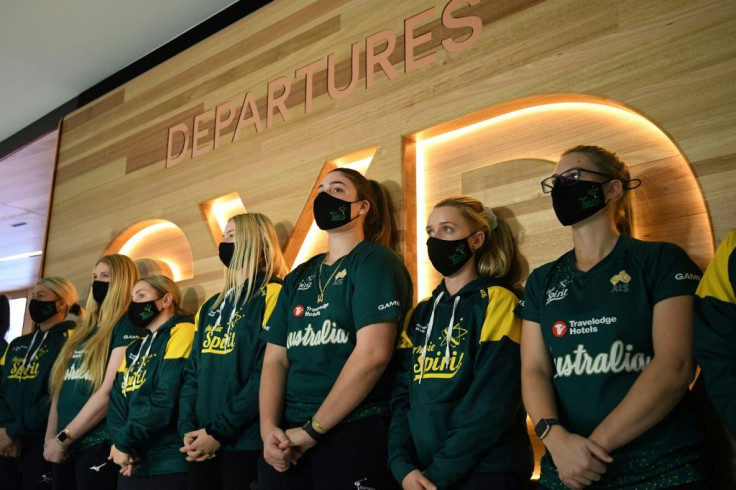
They filed off the plane sporting masks and green and gold uniforms, escorted by greeters wearing hats featuring the Olympic and Paralympic mascots.
Rows of chairs were set up for them in an airport corridor, where they filled out paperwork as staff in plastic aprons, masks and protective glasses came round to check the documents.
But the mood was still celebratory -- with team members waving to the media and snapping selfies -- and the arrival is likely to be a boost for organisers as they tackle persistent doubts about the Games.
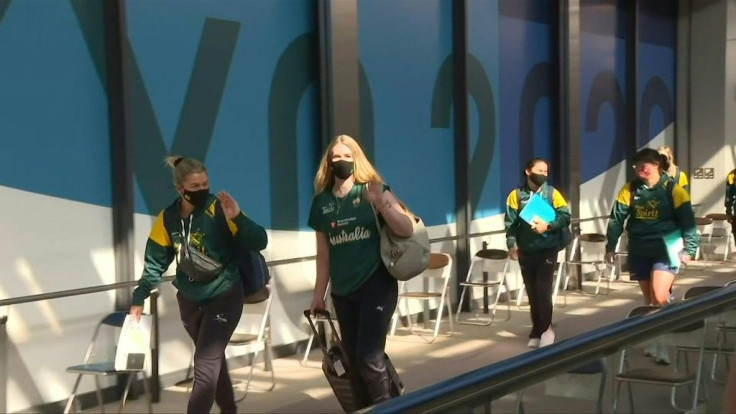
Polls show most in Japan want the Olympics postponed again or cancelled altogether, despite assurances from organisers that strict rules will keep athletes and the public safe.
Three hours after landing, an official confirmed the group had all tested negative and they left for their training camp in Ota City, around 100 kilometres (60 miles) north of Tokyo.
The delegation will be confined to one floor of their hotel, with no family members allowed to join them.
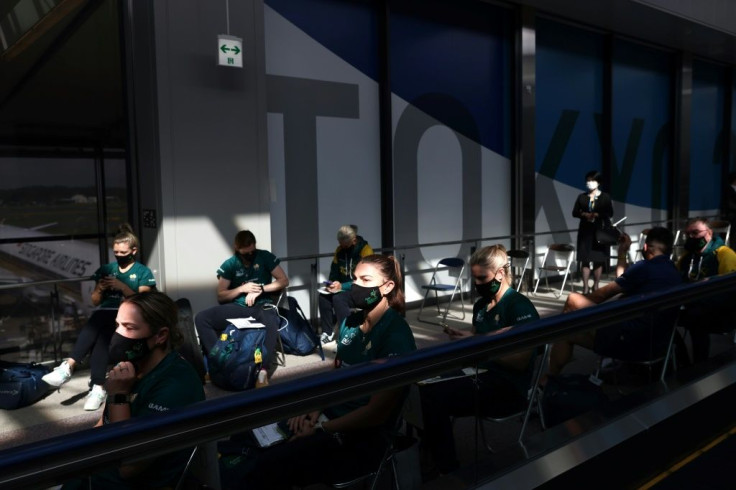
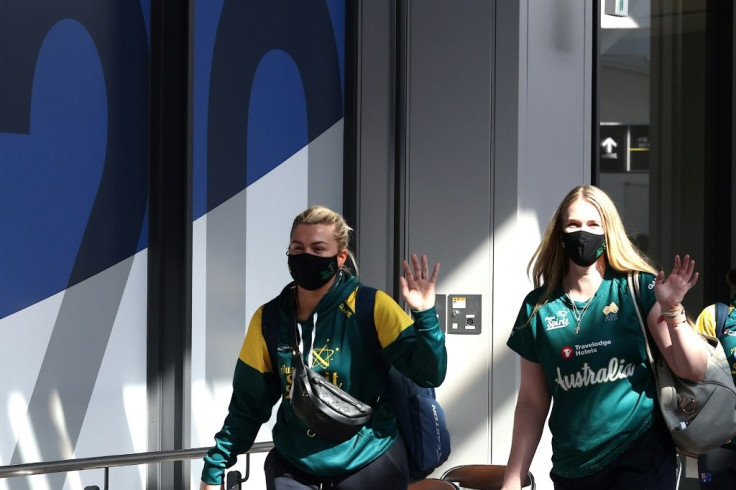
In Ota, hotel staff stood in the street holding up an Australian flag to welcome the team.
In a statement, "Aussie Spirit" head coach Robert Harrow said the team would be respectful of residents and "fall in line with the rules applied to us during our stay to keep everyone safe".
"We will be focused purely on our training during our time in camp," he added.
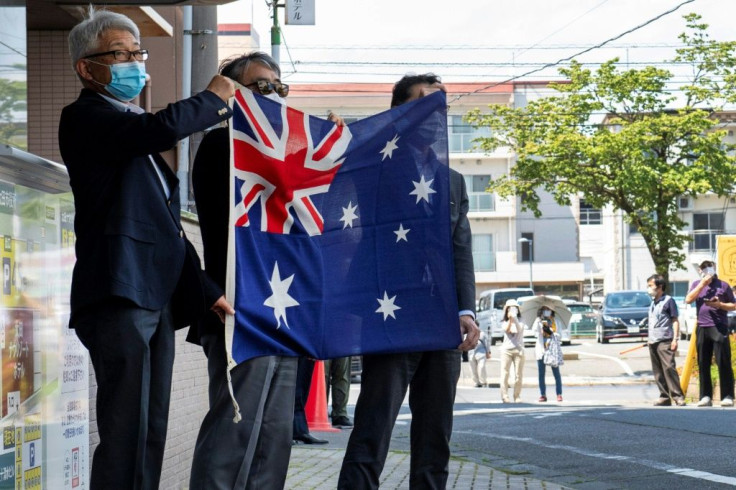
Many towns in Japan have cancelled plans to host Olympic training camps over virus fears, but Ota's mayor Masayoshi Shimizu said the city was "very pleased" to be welcoming the team.
"Training will be held in a limited environment due to the coronavirus but we will give them maximum support so that they can get ready and be in their best condition for the Games," he said.
Local residents were broadly supportive of hosting the team, with 62-year-old Hisanobu Ikeda saying he was "not too worried" about virus risks.
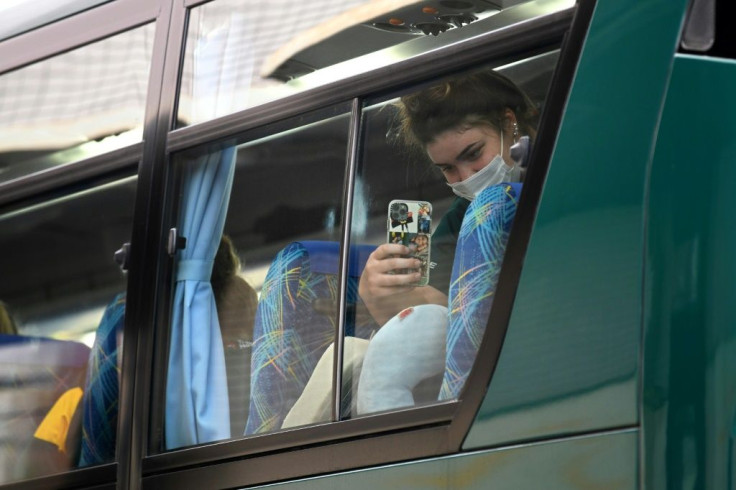
"They came all the way to Japan, and we cannot have any exchange with them. We cannot watch their practice either. It's painful," he added.
Softball Australia CEO David Pryles told AFP on Monday that the trip was a "huge" moment for the team, who had their Olympic preparations interrupted by the pandemic and have not played together since February 2020.
Their first fixture -- against the hosts -- will kick off Olympic competition on July 21, two days before the opening ceremony.
Harrow said opening the competition was "very exciting and a huge honour" for the team.
"We look forward to putting on a good show for the Japanese people as thanks for their generosity in hosting us."
With less than eight weeks until the Games open, debate continues about the wisdom of holding the massive event with the pandemic far from under control in much of the world.
Several parts of Japan, including Tokyo, are under virus states of emergency to tackle a fourth wave of infections.
The measures are nowhere near as severe as the lockdowns seen elsewhere in the world, and Japan has had a smaller outbreak than some countries with under 13,000 deaths.
Meanwhile officials and organisers are pressing ahead with preparations, and in another sign of momentum, Japan's Olympic athletes and staff began receiving vaccines on Tuesday.
They are being given donated doses separate from those secured for the general population.
Japanese Olympic Committee (JOC) officials said they had inoculated 200 people involved in seven sports on the first day.
"It isn't just to protect Japanese athletes and athletes from overseas, but it will also help to reduce the risk of infection in Japanese society," JOC Secretary General Tsuyoshi Fukui told reporters.
The country's comparatively slow vaccine rollout so far only applies to medical workers and the elderly.
Just around eight percent of people in Japan have so far received a first dose, with 2.7 percent fully vaccinated, though the pace has picked up in recent days.
© Copyright AFP 2024. All rights reserved.





















